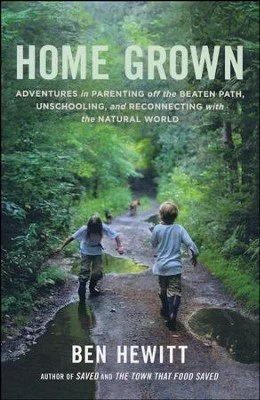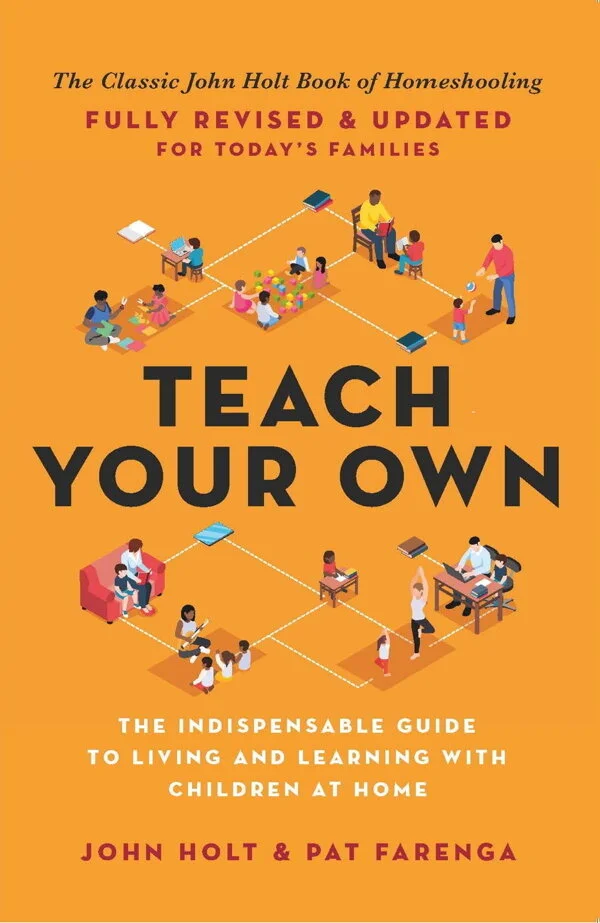In Freedom and Beyond, John Holt writes, “Another consequence of defining education as schooling is that as we put more and more of our educational resources into schools, we have less and less left over for those institutions that are truly open and educative and in which more and more people might learn for themselves.” This conference had little to say about education models that aren’t like school, but it’s a start.
Read MoreUnschoolers tend to believe that the most important issues of our lives deserve our personal attention, and that our personal attention, in turn, is naturally drawn to what is important—if it’s not schooled out of us. John Holt had precious little tolerance for easy answers—for curricula which would automatically make us healthy, wealthy, and wise; for experts who grew frustrated when asked for examples; and for Big Science Business Government who wrested from people their ability to educate, feed, or physic themselves.
Read MoreThe emphasis on doing school like we always have during the pandemic has caused childrens’ health and safety to be severely affected. Schools could have helped families by shifting their focus from the needs of the academic schedule to the real-world needs of children to socialize, explore, play, and exercise…
Read MoreThis Fall marks Teach Your Own’s 40th anniversary in print and my 40th anniversary working in the homeschooling/alternative education movement. Read more about the latest edition of Teach Your Own: The Indispensable Guide to Living and Learning with Children at Home.
Read MoreHarvard University’s ongoing 7-week conference, the “Post-Pandemic Future of Homeschooling” continues as I write this. Yesterday’s event, “Is child abuse greater at school or homeschool?” was a surprisingly frank session.
Read MoreDue to the pandemic, homeschooling is heating up and getting attention all over the world, and some of the attention is unwelcome. In France, homeschooling is close to being abolished this month, as Germany and Sweden have already done. In the United States, homeschooling has doubled in size this year and all sorts of things are brewing here as a result, too…
Read MoreI think homeschooling is getting a bad rap during the pandemic. Parents are pulling their hair out trying to teach their children at home and cursing homeschooling as a result. However, participating in daily classroom lessons sent from school to do at home is *remote learning*, not homeschooling. This is why many homeschoolers use the word *unschooling* to describe what they do: learning at home doesn’t have to occur only at home nor resemble learning in school.
Read MoreThere are issues facing us today that are larger than any single educational or regulatory issue homeschoolers face, namely racism and intolerance of people unlike ourselves. These issues need to be called out by all who support a free and just society.
Read MoreDan Greenberg, a founder of the Subury Valley School, writes “Sudbury Valley Schools and unschooling have NOTHING in common.” I write why we have much more in common than Greenberg claims.
Read MoreI spoke at a conference in Calgary, Alberta last month and learned that some school boards there cooperate with homeschoolers and help with reimbursements for educational expenses. It’s an interesting model for schools and homeschoolers.
Read MoreThis is about more than just saving money: when the internet is a place where anyone, anywhere, can set up a website to talk about their passion and interact with like-minded people, and where anyone with an internet connection can find them, self-directed learning can take us anywhere … If we can't save net neutrality, young people who want to take charge of their own education will find that the internet has been turned into just another place where someone else decides what they can read, watch, and listen to …
Read MoreNews and reports about learning without going to school from Belgium and Colombia. Life Without School–A Plea To Unschool Our Learning is a new title written by two Belgian authors, and Colombian researchers explore the economics of homeschooling/unschooling in their country and the characteristics of a really alternative school.
Read MoreMy wife and I were in Denmark in the mid-1980s and I asked a Dane we got to know if homeschooling was allowed in Denmark. He replied why would anyone do that in Denmark? They could make whatever school they wanted. 35 years later there is now a nascent homeschooling/unschooling movement there. Is something rotten in Denmark?
Read MoreIf schools aren’t able or obligated to teach some children to read why can’t we create publicly funded alternatives to school for those children? Self-directed learning challenges Horace Mann’s assumption about the need to compel school attendance: Freedom does not necessarily result in ignorance.
Read MoreToday’s vision of education isn’t about morals, citizenship, personal development, or social cohesion: it’s about sorting the winners and losers in a race for jobs. Here are more life-affirming visions of education than social Darwinism.
Read MoreSlow down, you move too fast! Here are some concrete actions and inspiring ideas for stepping way from conventional, multitasked, overscheduled family life and on to the path of home and community built on shared responsibilities and self-directed learning.
Read MoreTwo new online forums built expressly for unschooled teenagers are described by Jim Flannery, the founder/moderator of both. Plus the third Northeast Changemakers Jam happens at the end of March.
Read MoreMarilyn Rowe wrote this short, sharp book about why you should consider self-directed education for your children, and also provides an update about the changing scene for homeschooling in Quebec.
Read MoreThis is a great resource for anyone thinking about what we can do besides replicate conventional school practices and schools.
Read MoreA new report encourages states to promote homeschooling as a viable option to families. Citing research and the current political situation, this is a good summary of homeschooling from an education policy perspective.
Read More



















